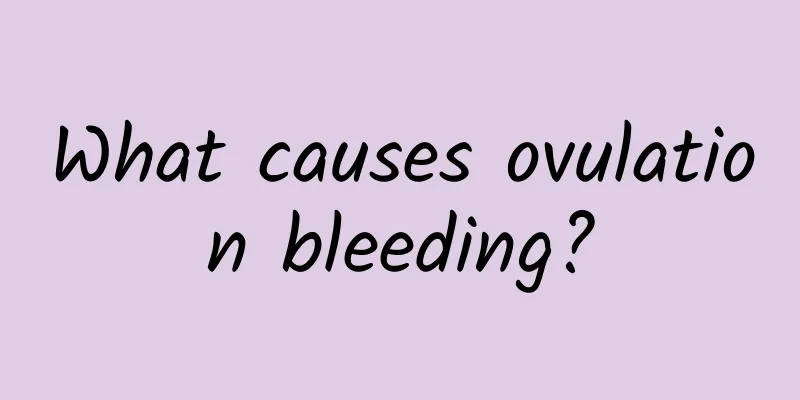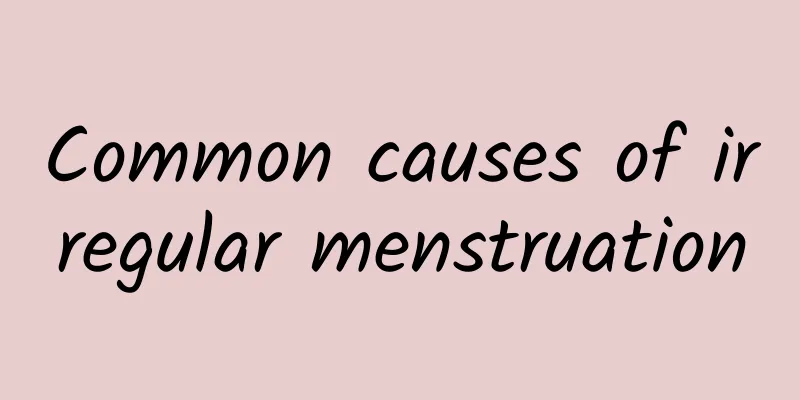What causes ovulation bleeding?

|
Ovulation bleeding refers to the phenomenon of vaginal bleeding caused by the shedding of the endometrium due to fluctuations in hormone levels during ovulation. Ovulation bleeding is usually caused by excessive fluctuations in hormone levels, chronic inflammation of the endometrium, incomplete atrophy of the corpus luteum, insufficient corpus luteum function, reduced secretion of female hormones, uterine fibroids, etc. The specific analysis is as follows: 1. Excessive fluctuations in hormone levels: Estrogen levels drop rapidly after ovulation, causing the endometrium, which is affected by estrogen and undergoes a proliferative reaction, to lose support and cause a small amount of bleeding. 2. Chronic inflammation of the endometrium: The endometrium becomes obviously congested during ovulation, or the blood vessels on the surface of the ovary happen to rupture during ovulation, causing more bleeding than normal and flowing back into the uterine cavity with the peristalsis of the fallopian tube and discharged from the body through the vagina. 3. Incomplete corpus luteum atrophy: When the corpus luteum atrophies, estrogen and progesterone cannot drop rapidly, and the shedding of the endometrium cannot be regular, which leads to bleeding. 4. Insufficient luteal function: If the secretion of progesterone is disordered, it will lead to a deficiency of estrogen and progesterone. At this time, the endometrium cannot be renewed normally, or the endometrium is prone to adverse reactions, which can lead to symptoms of small amounts of bleeding a few days before the menstrual period. This phenomenon will continue until the official onset of menstruation. 5. Decreased secretion of female hormones: During ovulation, a woman's estrogen levels will drop significantly, unable to support the normal growth of the endometrium, so a small amount of bleeding is likely to occur. 6. Uterine fibroids: If a woman has uterine fibroids, during the ovulation period, the high estrogen level will stimulate the growth of the fibroids. The fibroids will stimulate the shedding of the endometrium and cause bleeding. After ovulation, the hormone level drops and the bleeding stops. Ovulation bleeding is a normal physiological phenomenon, but if the amount of bleeding is excessive or accompanied by other discomfort symptoms, you should seek medical attention in time. You should avoid mental stimulation and emotional fluctuations in daily life to prevent bleeding caused by emotional fluctuations. Pay attention to keeping warm and avoid eating raw, cold and irritating foods to avoid aggravating bleeding symptoms. |
<<: What should you pay attention to after abortion?
>>: What is menopausal syndrome?
Recommend
Is it normal for vaginal discharge to be green sometimes? It is very abnormal
Leucorrhea indicates the health of women. If the ...
What is uterine cyst?
What is uterine cyst? Under normal circumstances,...
How to check for pelvic inflammatory disease
How to check for pelvic inflammatory disease? Pel...
What are the drugs for regulating irregular menstruation? Choose drugs according to symptoms
Menstruation is a normal physiological manifestat...
Can’t resist Chinese New Year delicacies? Be careful of acute complications caused by high blood sugar! Doctors call for: 3 keys to stabilize blood sugar
The Chinese New Year is a time for family and fri...
Dietary care for patients with amenorrhea
Amenorrhea is a common gynecological disease in w...
What causes spontaneous abortion?
Spontaneous abortion refers to the natural termin...
What are the main causes of cervicitis?
What are the main causes of cervicitis? I believe...
Experts introduce you to the treatment of chronic adnexitis
Everyone has heard of chronic adnexitis. In life,...
Can Chinese medicine treat amenorrhea?
Traditional Chinese medicine can regulate amenorr...
Will cervical erosion affect your sex life?
Cervical erosion is not a separate disease, but a...
How to treat uterine fibroids
We are all worried about the emergence of some tr...
What are the symptoms of irregular menstruation?
What are the symptoms of irregular menstruation? ...
Four detailed points in the diet for cervical erosion
Cervical erosion is the most common gynecological...
Can female miscarriage be cured?
Abortion is very harmful to women's bodies, s...









